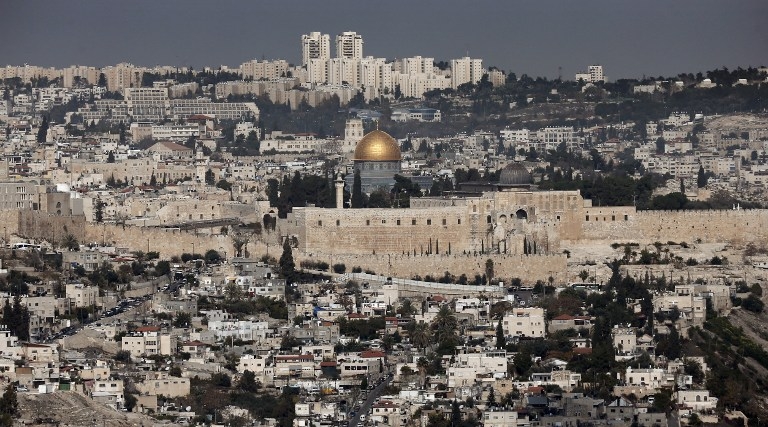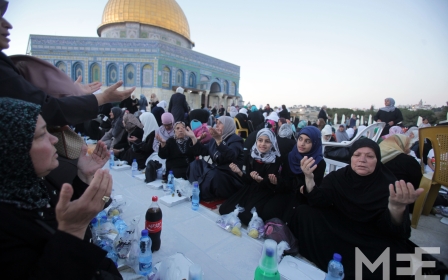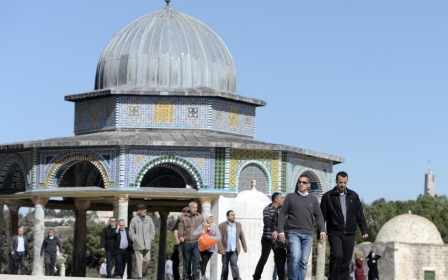Jewish settlers storm Jerusalem's al-Aqsa compound

At least 25 Jewish settlers on Monday forced their way into occupied East Jerusalem's flashpoint al-Aqsa Mosque compound, a Palestinian official has said.
The settlers, said Sheikh Omar al-Qiswani, the Palestinian director of the al-Aqsa complex, stormed the holy compound through the al-Magharbeh Gate under Israeli soldiers' protection.
"Settlers toured the courtyards and tried to perform Talmudic rituals, but were prevented from doing so by the mosque guards," al-Qiswani said.
Al-Qiswani added that Israeli police stationed at one of the compound's gates had summoned Palestinian guard Mourad Mousa for interrogation.
Tension has run high in East Jerusalem since Israeli authorities briefly closed the al-Aqsa Mosque compound in late October following the shooting of right-wing Israeli activist Yehuda Glick in West Jerusalem.
The closure of al-Aqsa, along with the killing by Israeli police of Mu'taz Hijazi, a young Palestinian man suspected of shooting Glick, has prompted angry protests by Palestinians in East Jerusalem.
Since then, several Israelis have been killed and injured in a spate of attacks by Palestinians – both inside Israel and in the occupied territories.
Al-Aqsa is the third holiest site in the world. Jews call the area Temple Mount and believe it was the site of two Jewish temples in ancient times.
Held sacred by both Jews and Muslims, access for Muslims to al-Aqsa has regularly been limited to women and men over the age of 40 or 50, particularly during times of political tensions while tourists and Jews have been able to enter the compound on weekdays, escorted by police and prohibited from praying or performing religious ceremonies.
In September 2000, a visit to al-Aqsa by controversial Israeli politician Ariel Sharon triggered the Second Intifada, a popular uprising against Israel's decades-long occupation in which thousands of Palestinians were killed.
Israel occupied East Jerusalem during the 1967 Middle East War. It later annexed the holy city in 1980, claiming it as the capital of the self-proclaimed Jewish state – a move never recognised by the international community.
Middle East Eye propose une couverture et une analyse indépendantes et incomparables du Moyen-Orient, de l’Afrique du Nord et d’autres régions du monde. Pour en savoir plus sur la reprise de ce contenu et les frais qui s’appliquent, veuillez remplir ce formulaire [en anglais]. Pour en savoir plus sur MEE, cliquez ici [en anglais].




